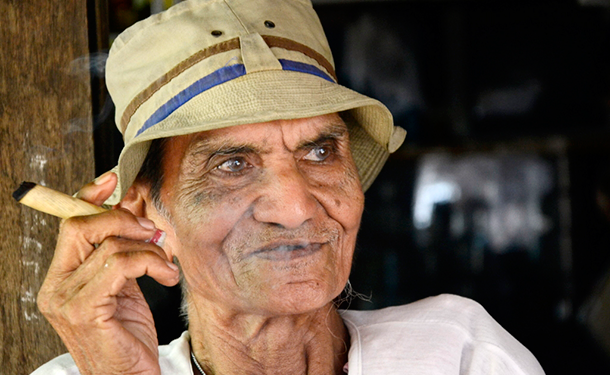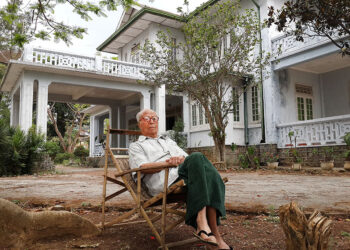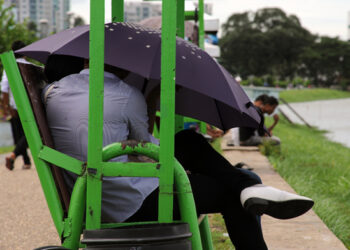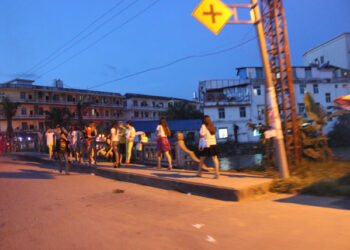THE MU RIVER VALLEY, Sagaing Region — Myanmar has a long and complicated history, full of footnotes that could take up whole chapters. One episode that still stands out, even though precious little remains to remind us of it today, came in the early 17th century, when Portuguese adventurers held the fate of kingdoms in their hands.
The Portuguese first started arriving on Myanmar’s shores some 500 years ago, but it was not until 1599, when the mercenary Filipe de Brito e Nicote wrested control of Thanlyin (Syriam) away from the powerful Taungoo dynasty, that they gained a foothold in the country.
De Brito (known in Myanmar as Nga Zinga) was subsequently named governor of this strategically important port on the Bago River opposite Yangon (then called Dagon) by the Rakhine king Min Razagyi, in whose service he had captured it. But his true loyalties soon revealed themselves when, in 1603, he claimed Thanlyin for Portugal.
Once in power, de Brito quickly earned a permanent place in Myanmar’s annals of infamy by plundering Buddhist temples for their bells, which he had recast as cannons. His reign was short-lived, however: In 1613, King Anaukpetlun reclaimed Thanlyin for the Taungoo dynasty, and had de Brito impaled for desecrating Buddhist holy sites.
For most in Myanmar, that is where the story ends. What few realize, however, is that in a remote corner of Sagaing Region some 93 miles (150 km) northwest of Mandalay, the legacy of de Brito’s brief foray onto the stage of Myanmar history lives on to this day.
After de Brito was executed, most of the 5,000 Portuguese soldiers who had served under him were transported to Innwa (Ava), then the Taungoo capital, as prisoners of war. Some were recruited to serve as military advisers, but the bulk, it was decided, were best resettled somewhere else, at a safe distance from the seat of power.
That is how the Bayingyi, as these former Portuguese mercenaries and their descendants are known, came to inhabit a handful of villages in the dry, inhospitable region between the Mu and Chindwin rivers.
Today, in villages like Monhla and Chanthar in the valley of the Mu River, the surviving Bayingyi eke out a modest living as farmers or traders, and are almost indistinguishable from their Buddhist neighbors apart from certain features, such as their long, straight noses and light-colored eyes.
“My parents told me that we were descended from the Portuguese, but really, we are all mixed up,” says U Ba Htay, 89, from the village of Monhla, located about 14 miles (22.5 km) west of the town of Khin-U.
Despite his piercing gray eyes and tall stature, U Ba Htay is in most respects a typical man of Anyar, as this region is known: He has the distinctive sense of humor of the local people of this region, and speaks with a strong Anyar accent as he puffs away on a cheroot rolled up in a corn husk.
Monhla has around 170 Bayingyi households, and despite its modest size, is graced with an impressive Catholic church, St. Michael’s, built in the Gothic style to accommodate the tombs of Barnabite priests from Italy who came to minister to the Portuguese banished to this area. Among those interred here is Father Giovanni Maria Percoto, who played a major role in bringing Western learning to pre-colonial Myanmar in the late 18th century.
These days, most of the priests serving local congregations are natives of the area. Despite this, however, many still profess loyalties to a distant land that few have ever visited.
“Many generations have passed since our ancestors came here, but I still feel that because of my heredity, I should support the Portuguese team when they’re playing football,” says Father Paul Thet Khing from Chanthar, a village in Ye-U Township that is home to more than 1,100 Bayingyi.
Despite their ties to a foreign land, in the centuries that followed their forced resettlement here, the Bayingyi fought bravely alongside Myanmar troops to defend the country from outsiders, helping to defeat the Chinese during the war of 1765-1769, and suffering great losses in the First Anglo-Myanmar War of 1824-1826.
Sadly, however, their unique identity has long since been erased. Apart from their religious affiliation, nothing survives of the culture of their forebears, and since the socialist era (1962-1988), they have been required to identify themselves as ethnic Bamar rather than as Bayingyi.
“After 400 years of intermarriage, there is nothing left of our Portuguese culture for us to preserve,” concedes another priest, Father Alphonse U Ko Lay. “All that remains now is our faith, and the only thing we can do to keep that alive is practice our freedom of worship.”

















